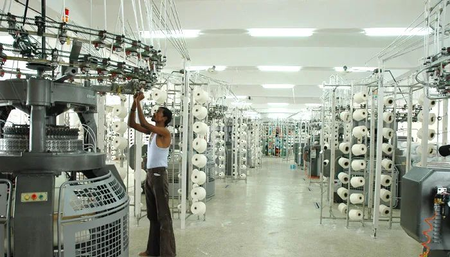
New Delhi, Jan 28 (IANS) Auditing firm Deloitte has once again been caught in the eye of the storm of regulators.
Deloitte’s international audit arm certified that Nigerian firm Tingo – accused of fraud by Hindenburg – had more than $470 million in the bank.
However, reports indicate that the Securities and Exchange Commission only found $50 in the company’s accounts. The US regulator said it found “billions of dollars” in fictitious transactions through entities controlled by Dozy Mmobuosi, the founder and former CEO of Tingo.
Deloitte had given fintech a clean, unqualified audit for its 2022 accounts. This discrepancy came to light when short seller Hindenburg questioned Tingo’s accounts, asking whether the firm had “missed or rushed through procedures”.
Deloitte’s Indian affiliate has also been in controversy in the last five years or so.
Its auditing practices came into the limelight after the collapse of indebted infrastructure financier IL&FS Group. This led to investigation by various Indian regulators and agencies including the Serious Fraud Investigation Office and the Ministry of Corporate Affairs.
Deloitte’s audit quality was also examined by the National Financial Reporting Authority (NFRA) which found many lapses in the procedure.
Hindenburg noted that the issues in Tingo’s financials “are glaring enough that we’d expect they could have been spotted by any semi-conscious finance undergrad with severe vision loss”, Hindenburg wrote. “These issues were apparently not glaring enough for the company’s auditor, however.”
This is not the first recent instance where the international network of firms has faced regulatory issues.
In September 2023, the Public Company Accounting Oversight Board sanctioned Deloitte & Touche S.A.S. for its quality control violations and imposed a $900,000 fine on the Colombian affiliate of the Deloitte global network.
The PCAOB found that Deloitte & Touche’s Colombia’s system of quality control failed to provide it with reasonable assurance that audit work would be performed and documented in accordance with PCAOB standards.
On the other side of the world, Chinese regulators imposed a heavy fine of $30.8 million on Deloitte’s Beijing office for its failure to adequately audit a Chinese state-owned asset management company whose former head was sentenced to death on corruption charges.
The Chinese regulator noted that Deloitte failed to pay close enough attention to management activities, and that the audit did not meet the requisite standards.
Similarly, the Malaysian audit firm Deloitte PLT agreed to pay Malaysia’s government $80 million to resolve certain claims related to its auditing of accounts of scandal-linked state fund 1MDB and its unit SRC International from 2011 to 2014. That was when the Malaysian government and regulators investigated the firm’s role in auditing the financial statements of 1MDB.
In the IL&FS matter, during arguments before the National Company Law Tribunal and the Bombay High Court, the government alleged that Deloitte’s Indian audit firm auditing the relevant IL&FS entities connived and colluded with a coterie to conceal information and falsify the books of accounts.
It was alleged that the auditors knowingly did not report the true state of affairs at IL&FS as they failed to report the negative net owned funds and negative capital to risk asset ratio of certain IL&FS group entities.
Petitions filed by Deloitte and some of its partners that challenged the SFIO’s investigation report were dismissed by the Supreme Court through a judgment in May 2023, paving the way for the Mumbai trial court to continue with proceedings arising from the SFIO’s criminal complaint.
Reports by the Institute of Chartered Accountants, Reserve Bank of India and the SFIO also noted that the auditor, along with their engagement team did not perform their duties diligently.
The government alleged that despite having knowledge of the impact of funding of default borrowers for principal and interest payments, Deloitte did not report this in the Auditor’s Report from FY 2013-14 to 2017-18, leading to non-compliance of section 143(1)(a) of the Companies Act.
The regulators also alleged that Deloitte’s firm auditing IL&FS attempted to postpone the provisioning and recognition of NPA by transferring the loans by mere book entry resulting in showing old loans as closed and non-provisioning of new loans.
Two audit quality reports by the NFRA also highlighted the failure of Deloitte in auditing certain IL&FS entities.To be sure, the NFRA is tasked with recommending accounting and auditing policies and standards to be adopted by companies. It also monitors and enforces compliance with accounting and auditing standards while also overseeing the quality of service of the professions associated with ensuring compliance with such standards.
The audit watchdog concluded that Deloitte’s audit firms grossly violated the provisions of Section 144 of the Companies Act, 2013. It notes that the audit firm was in serious breach of the Code of Ethics and did not have adequate justification for issuing an audit report. The NFRA notes that failures and violations by the auditor undoubtedly and fatally compromised the independence required from an audit firm.
Similarly the practices relating to independence have been shown to be severely inadequate and not fit for purpose, the NFRA said in its report. As a result of these failures,the NFRA barred the former Deloitte Haskins and Sells LLP chief Udayan Sen from auditing for seven years and imposed a monetary penalty for auditing lapses at Infrastructure Leasing & Financial Services Ltd (IL&FS). The regulator found him guilty of professional misconduct and not maintaining independence and quality in auditing accounts of the financial company. The findings by regulators and NFRA have been challenged by Deloitte and its partners before various forums.
–IANS
san/




